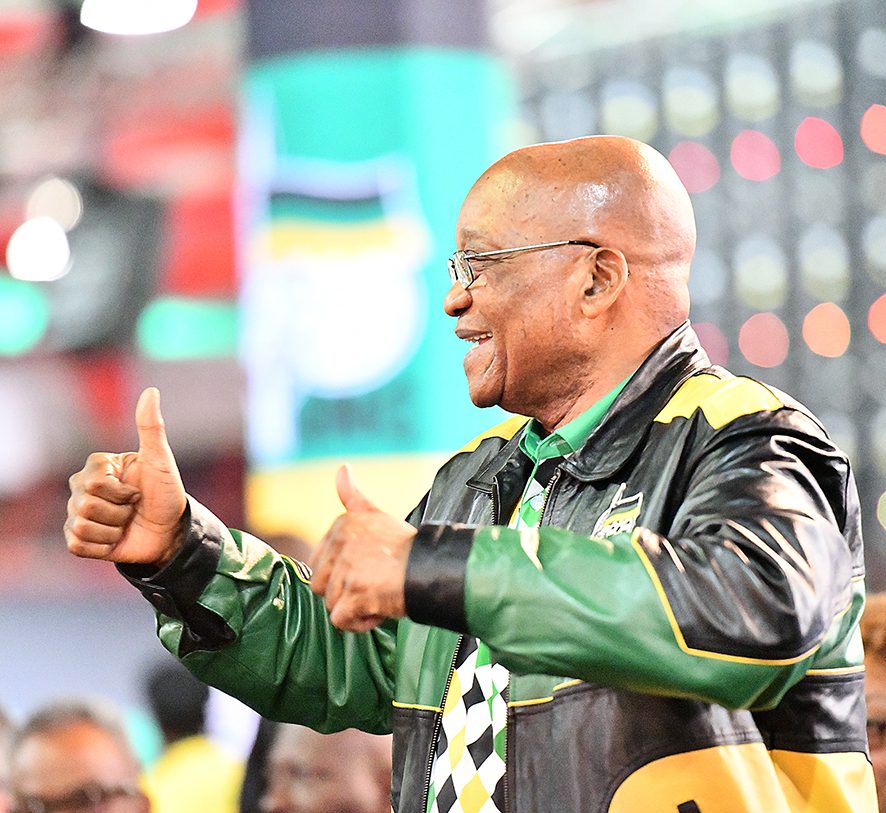The South African revolution has failed, former deputy chief justice Dikgang Moseneke said as he gave a frank assessment of the post-apartheid state’s performance.
Moseneke, who hung his robes in 2016, was speaking at the South African National Editors’ Forum fundraising gala dinner in Joburg on Friday night.
Moseneke, himself a freedom fighter, said it “pained” him to refer to South Africa’s revolution as a failure.
“We have seemingly emerged from the ghastly revelations of state capture, or have we? But think again. As I read what you as journalists write often, what you still investigate and disclose, virtually every other state or provincial departments is a site of pillaging and corruption. It is a site of crime against our people,” he said.
“How could it be that so many departments, its leaders and workers are being investigated for this extensive thuggery that extends to billions of rand?
“Every other municipality faces inability to perform its most basic statutory obligations. Our circumstances of governance appear to be dire.”
Moseneke spent 10 years as a political prisoner in Robben Island. After his release, he rose through the ranks of the legal system. Former president Nelson Mandela called on him to help draft the interim constitution as South Africa transitioned out of apartheid. He later advised on the drafting of the 1996 constitution.
Moseneke’s remarks come on the eve of President Cyril Ramaphosa handing over an implementation plan on the state capture report to parliament.
A special national executive committee (NEC) meeting of the ANC was held this week where the party’s state capture task team chairperson, Jeff Radebe, gave feedback that is expected to guide the government on how to deal with the recommendations of the Judge Raymond Zondo report.
About 200 ANC leaders, including those running for top six positions, were implicated in the report.
Sunday World understands there was a strong pushback against some of the recommendations of the state capture report, with some leaders arguing Zondo had gone beyond the scope of his terms of reference.
“There was a view that Zondo went beyond his terms of reference. There was also an outcry over how other comrades were treated by the commission. Some were not given sufficient time to respond to allegations while others could not cross examine witnesses that testified against them,” an NEC member who attended the meeting said.
Another NEC member said Radebe’s report looked at the recommendations and reflected on whether they should be accepted. The leader said the proposal for chairpersons of Parliament committees to be appointed from the ranks of opposition parties was rejected as this “violates the spirit of the constitution and electoral laws”.
“The second one was the vetting of boards of state-owned enterprises, which was acknowledged and there was an indication it is already being implemented,” the leader said.
“We reaffirmed our position on supporting the work (of the commission) and encouraged individuals to take the matters individually if they are aggrieved. Noted those who are excising their rights to take the report to review,” the leader added.
Zuma, who declined to give evidence before Zondo, which led to his incarceration, yesterday doubled down, without providing evidence, that the state capture commission was weaponised against him.
Zuma is running for national chairperson at the ANC’s elective conference and has endorsed Nkosazana Dlamini-Zuma for the top position.
Zuma again made unverified allegations of bias by Zondo.
“My imprisonment started with chief justice Zondo setting out an unprecedented legal process against me in terms of which I became his target of abuse. From the start of the state capture commission, it became clear to me that justice Zondo as chair of the commission was not interested in establishing the truth… in other words chief justice Zondo was not a neutral judge leading a fact-finding commission but was running a process of writing a report that would establish the guilt of all those who were accused of state capture.”
Zondo in May released a withering report of how state capture took root during Zuma’s rule.
Zondo found that the former president had enabled his family friends, the Gupta family, to have free reign at state-owned utility Eskom and in appointing and dismissing ministers.
“Central to the Guptas’ scheme of state capture was former president Zuma, who the Guptas must have identified at a very early stage as somebody whose character was such that they could use him against the people of South Africa, his own country and his own government to advance their own business interests, and Zuma readily opened the doors for the Guptas to go into the (state-owned entities) and help themselves to the money and assets of the people of South Africa,” the report said.

Follow @SundayWorldZA on Twitter and @sundayworldza on Instagram, or like our Facebook Page, Sunday World, by clicking here for the latest breaking news in South Africa. To Subscribe to Sunday World, click here



